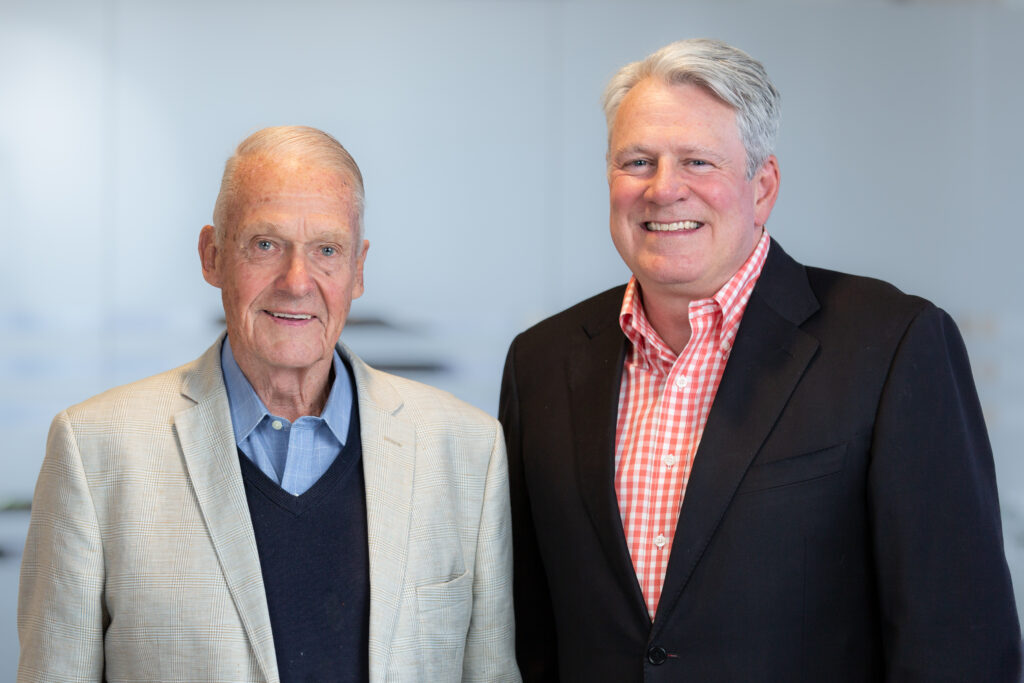We’ve learned many lessons since our start in 2008, and have built a repertoire of more than a few John-isms over the years.
One of our favourites – “we can’t build ourselves out of homelessness,” – signified a strategic shift towards prevention to fill gaps in the system, rather than focusing exclusively on building supportive housing. Under John’s leadership, Streetohome has contributed to 35 projects – 23 supportive housing buildings and 12 prevention projects since 2008. Now, after 15 years at the helm, John McLernon is stepping down as Board Chair.
“Streetohome’s role is to improve homelessness and mitigate its impact – we’ve learned that there’s no single, silver bullet solution to ending it,” says John. “Our success lies in being able to gather key people to look at what we’re doing, collaborate and enhance each other’s projects, find gaps in the homelessness services system, and broker innovative projects that can fill those gaps.”
Not only did Streetohome discover that a one-size-fits-all solution simply won’t produce better outcomes for many, but there was a cost efficiency to focusing on prevention, explains John. These smaller prevention and recovery projects such as the Vancouver Rent Bank; Supporting Tenants, Enabling Pathways (STEP); Homeward Bound; Recovery Café; or Want2, may help a more niche or smaller cohort of people at the start, especially when compared to housing hundreds at a time in a high-rise. However, their sustainability adds up exponentially, at less cost per person compared to building a supportive housing unit.
“We aren’t looking for home runs – we’re looking for solid base hits.” – John McLernon
“It just came to me one day. Construction is expensive and we’ve seen housing projects that didn’t go according to plan due to a lack of understanding around tenants’ needs. We needed more knowledge around what their individual needs were, and alternative ways to help them that would complement their housing so they could move forward in their lives,” explains John.
“Connection is the most important thing in life – to be connected with friends, teammates, neighbours – you can’t function effectively without it. If you don’t have a community, your physical and mental wellness goes downhill fast. The more we can help people become a part of the community, the better outcomes we’ll see for those experiencing homelessness,” explains John.
“We need to understand community and how to foster and improve it to better people’s lives. The Recovery Café is a great example of this,” he says.
John’s departure coincides with the renewal of our strategic framework, led by founding directors Geoff Cowper and Kevin Bent. Kevin has also stepped up to take the helm as incoming Board Chair in 2023.
“When I first sat down with John to hear about his vision for Streetohome, and some of the potential Board members he was approaching, I couldn’t help but think that this was a very, very cool initiative,” says Kevin.
“We’ve learned some really good lessons since our start. One of the key takeaways for me is that there’s so many people doing wonderful work in this sector, as well as around the world. You don’t need to reinvent the wheel. We’ve been able to take a lot of good ideas and adapt them for Vancouver in a way where they’ve had a major impact on street homelessness.”
As Streetohome moves forward, there will be a renewed focus on the Streetohome Stool’s domains to enhance and complement promising support services, and bring innovative housing models to Vancouver – especially those projects that bring a sense of belonging to individuals, along with promoting mutual concern and accountability for one another, says Kevin.
As we continue our journey under Kevin’s leadership, John says he is confident we’ll accomplish what we set out to do in our renewed strategic framework, and continue to make a positive impact on homelessness in Vancouver.
With his never-ending passion for addressing homelessness, John will continue to be involved in special projects and committees. This isn’t goodbye, but merely an, ‘I’ll see you later.’

